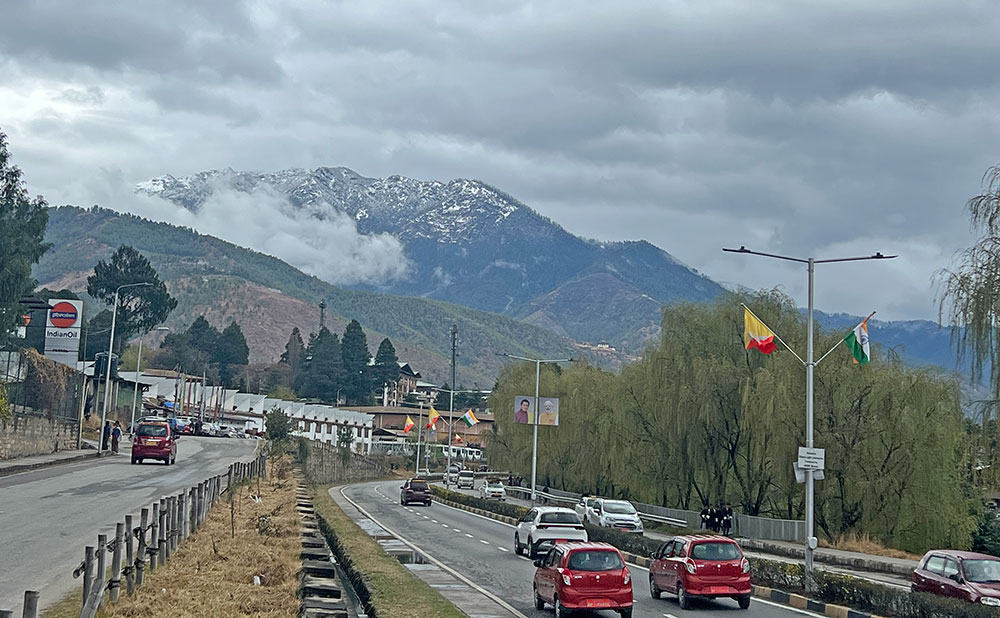What we saw in Prime Minister Narendra Modi’s visit to Bhutan last week symbolised pragmatic wisdom that has kept Bhutan-India relations transcending what some critics call rhetoric and what observers sometimes see as Bhutan being pressured to compromise elements of our sovereignty. Given that the relations between Bhutan and India do have implications and lessons that range from bilateral interaction to national integrity, the trends over the years must be consistently remembered and permanently imprinted on the mind.
The criticism is not all inconsequential. Indian and Bhutanese leaders, as well as writers and commentators, have exhausted the diplomatic dictionary describing bilateral exchange to the extent that it is sometimes repetitious. And, given the history of global colonialism, there are those who are sceptical of claims that there can be total equality between a small country and a large neighbour.
It is the nature of politics that the unique bilateral exchanges between Bhutan and India will be scrutinised, criticised, and commended. Human relationships, even between close family members, are never without tensions. In fact the resilience of Bhutan-India relations was tempered by confronting and overcoming the occasional turbulence.
There are no leaders who are not criticised, anywhere in the world. Bhutanese, like people everywhere, hear every day, comments on Prime Minister Modi, a personality who is expanding his global impact. Critics and media argue on grounds of political, ethical, religious, and other differences, sometimes discarding realities and sometimes biased. In an age dominated by international media, South Asia did not look good; but we are now seeing a turn-around and the global south is gaining a voice in global discourse.
India has assisted Bhutan since its decision to shed a centuries-old isolation. This has been deeply appreciated as gesture of friendship and generosity. Observers also say that it is good politics on India’s part because Bhutan historically aligned its partnership with India instead of seeking support even from major donors. There are analysts, including Indian influencers, who point out that India’s assistance is an expression of its appreciation for Bhutan’s decision.
Bhutan’s clear national policies prioritise peace and sovereignty, happiness and development, requiring goodwill and close bonds with our neighbours and with the world. This is why we thrive with our own identity although we share international boundaries with large and powerful neighbours. Pragmatic wisdom has evolved into good statecraft that has enabled Bhutan to be an independent and equal partner that dares to be different.
Bhutan’s approach to transformation is that dreams may change but reality does not. It is this raw acumen that has guided Bhutan to nurture friendships with special resolve. Beginning with an amazing welcome to Prime Minister Nehru who arrived on the back of a yak in 1958 we have seen regular and frequent exchanges of high-level visits over the decades.
For a Prime Minister of Narendra Modi’s stature to visit Bhutan three times reflects goodwill and respect. The repeated images of Prime Minister Dasho Tshering Tobgay and Prime Minister Modi in a friendly hug, indicating the rapport between a powerful global figure and a younger Bhutanese leader, was worth a smile. What was reassuring was their body language that reflected a warmth beyond formality and protocol.
But the crest of Bhutan-India relations is symbolised, not in the largest development assistance that was declared, not even in the award that Prime Minister Modi proudly accepted, but in the images of His Majesty the King and the Prime Minister in New Delhi and in Thimphu. The regal presence of His Majesty the fourth Druk Gyalpo at the award ceremony in Thimphu enriched the memories of bilateral history. And the images of Prime Minister Modi with the Royal family, flashed widely in Indian media, was a vivid sense of bilateral relations for the future.
His Majesty The King’s presentation of the Order Of The Druk Gyalpo for the first time to a foreign national carried special credence because the award is rare even for Bhutanese. India’s assistance of Rs 100 billion for Bhutan’s 13th Plan carries a special weight because it was announced in person by Prime Minister Modi in Thimphu. And his praise for the Royal vision of Gelephu Mindfulness City was an expression of India’s support for the future. These were conscious gestures, respecting each other’s needs and achievements and moving forward together.
Contributed by
Dasho Kinley Dorji


